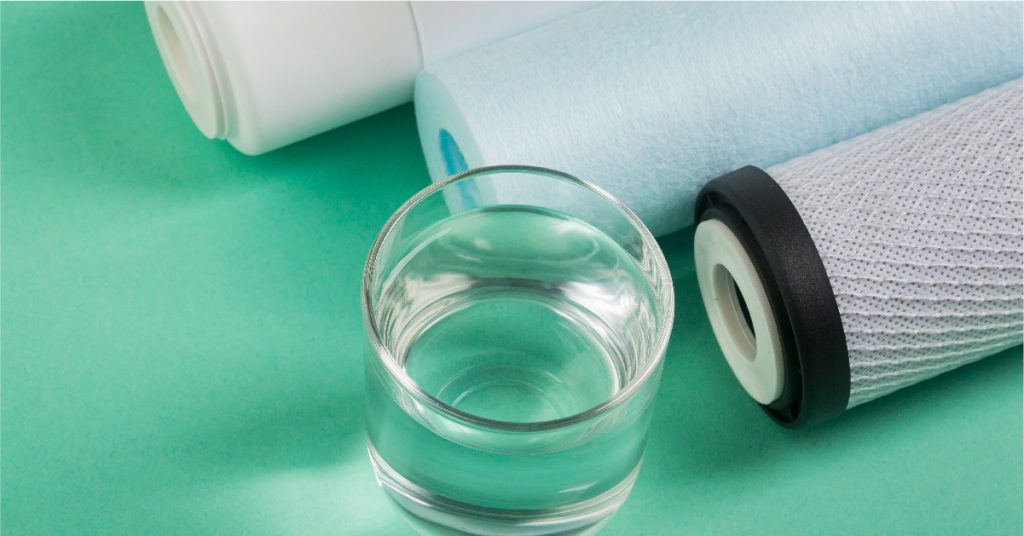With rising concerns over water contamination and quality across Malaysia, more households, industries, and commercial establishments are turning to efficient water purification technologies. Among the most popular and trusted methods is the activated carbon filter—a system known for its ability to effectively remove a wide range of impurities. Whether used as part of a residential water purifier or an industrial treatment plant, the activated carbon water filter plays a crucial role in delivering safe and clean water.
This blog explores what an activated carbon filter removes from water, how it works, and why it’s a highly relevant solution for water purification needs in Malaysia.
What Is an Activated Carbon Filter?
An activated carbon filter is a type of water filtration system that uses activated carbon (usually derived from coconut shells, coal, or wood) to trap contaminants. The carbon is “activated” through a special process that increases its surface area and creates a network of pores. This structure allows the carbon to adsorb—not absorb—impurities from the water that passes through it.
The process of adsorption means that pollutants stick to the surface of the carbon, rather than getting soaked in. This makes the filter incredibly efficient at capturing organic chemicals, unpleasant odors, and other harmful substances from water.
What Does an Activated Carbon Filter Remove from Water?
So, what does an activated carbon filter remove from water? Here’s a breakdown of the common impurities eliminated by this filtration method:
- Chlorine and Chloramine
Municipal water in Malaysia often contains chlorine or chloramine for disinfection. While effective for killing germs, these chemicals can leave behind a strong taste and odor. Activated carbon filters effectively remove them, improving the water’s smell and taste. - Volatile Organic Compounds (VOCs)
VOCs such as benzene, pesticides, and herbicides can seep into groundwater through agricultural and industrial activity. Activated carbon filters trap these harmful compounds, preventing them from entering drinking water. - Sediments and Suspended Particles
While not their primary function, many activated carbon water filters can reduce fine particles and sediments when combined with pre-filtration stages. - Heavy Metals (to a limited extent)
Some filters with specially treated activated carbon can reduce metals like lead or mercury. However, for complete removal, a multi-stage filtration system may be required. - Bad Taste and Odor
Activated carbon is excellent at removing substances that affect the organoleptic quality of water, such as sulfur compounds, chlorine, and certain organic matter.
While an activated carbon water filter does not remove minerals, salts, or microbes like bacteria and viruses on its own, it pairs well with other filtration technologies like UV, RO, or ceramic filters to provide comprehensive purification.
Why Activated Carbon Filters Are Ideal for Malaysia?
Malaysia faces unique challenges when it comes to water quality. Rapid urbanization, agricultural runoff, and aging infrastructure can lead to chemical, sediment, and organic contamination in the water supply. In this context, activated carbon filters offer a practical and accessible solution for several reasons:
- Effective Against Chlorine-Treated Water
Most public water supply systems in Malaysia use chlorine. Activated carbon filters help make this water more palatable by removing the chlorine after disinfection. - Suitable for Both Rural and Urban Settings
Whether you live in a city like Kuala Lumpur or a kampung in Kelantan, activated carbon filters can be easily installed in homes and community water systems. - Affordability and Accessibility
Activated carbon filters are widely available across Malaysia, from portable jug filters to under-sink units and industrial-scale setups. They’re cost-effective and easy to maintain. - Environmental Sustainability
Many filters now use coconut shell-based activated carbon—a renewable and locally available resource in Southeast Asia, making it an eco-friendly choice. - Improved Taste and Safety for Everyday Use
From cooking and drinking to bathing, clean water free of chemical odor and bad taste improves health and comfort.
Ion Exchange Activated Carbon Filter for Efficient Water Purification
The Ion Exchange Activated Carbon Filter (ACF) is engineered for efficient removal of colour, odour, free chlorine, and organic impurities such as oil and COD from raw water. Using carbon as the filtration media, the ACF ensures high-performance purification post multi-grade filtration, operating effectively at specific flow rates of 10–24 m³/h. Designed by ASME Sec VIII, Div-I or IEI good engineering practices, the unit comes with construction options in MS, MSRL, or SS 316, and frontal pipework in PVC, MS, MSRL, or SS 316. With its ability to handle higher specific velocities and the option to use raw water for backwashing, this filter safeguards downstream systems, particularly RO membranes and ion exchange resins, against damage from oxidation and organic fouling.
Conclusion
An activated carbon filter is a smart, efficient, and reliable way to enhance water quality for Malaysian homes and businesses. By understanding what activated carbon filters remove from water, users can make informed decisions about their water purification needs. As water quality continues to be a public concern in Malaysia, choosing the right activated carbon water filter can provide peace of mind, better health, and improved taste and safety in everyday water use.


